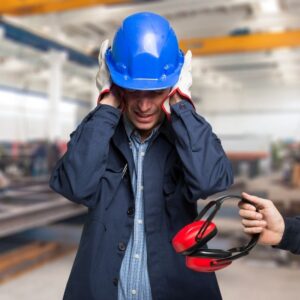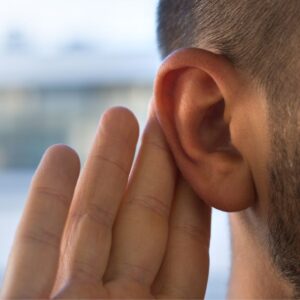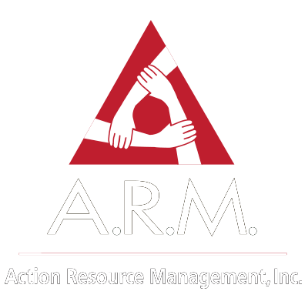Hearing Loss – World Hearing Day, March 3, 2024 — World Hearing Day is recognized annually on March 3 to raise awareness about hearing loss and promoting ear and hearing care. Organizers also call for action to address hearing loss and related issues. The theme for 2024 is to “make ear and hearing care a reality for all.”
Hearing loss and warehouse work
Warehouse workers are exposed to various sources of noise, such as machinery, forklifts, conveyor belts, and trucks. These noises can cause hearing loss over time, especially if they exceed 85 decibels (dB) for more than eight hours a day.
Some particularly noisy warehouse jobs
 Warehouse clerk: This job involves receiving, storing, and distributing goods in a warehouse. Warehouse clerks may have to use scanners, printers, and computers, as well as operate forklifts and pallet jacks. The noise level for this job can range from 80 to 95 dB1.
Warehouse clerk: This job involves receiving, storing, and distributing goods in a warehouse. Warehouse clerks may have to use scanners, printers, and computers, as well as operate forklifts and pallet jacks. The noise level for this job can range from 80 to 95 dB1.
Warehouse associate: This job involves picking, packing, and shipping orders in a warehouse. Warehouse associates may have to use carts, dollies, and hand trucks, as well as load and unload trucks as they move through the warehouse. The noise level for this job can range from 85 to 100 dB.
“Hearing loss has often been referred to as an “invisible disability”, not just because of the lack of visible symptoms, but because it has long been stigmatized in communities and ignored by policy-makers.”
– Tedros Adhanom Ghebreyesus
WHO Director-General
Hearing loss data

According to the CDC, about 22 million workers are exposed to dangerous noise levels each year, and occupational hearing loss is a common work hazard.
Some studies have found that warehouse workers have higher rates of hearing loss than other occupations, and that noise exposure varies depending on the type of warehouse job.
For example, one study found that warehouse clerks had an average noise exposure of 80 to 95 decibels (dB), while warehouse associates had an average noise exposure of 85 to 100 dB. Exposure to noise above 85 dB for more than eight hours can cause hearing damage.

Protect your hearing at work
- Wear hearing protection, like earplugs or earmuffs, when you are exposed to noise above 85 dB.
 Your hearing protection should fit well, is comfortable to wear, and reduces noise exposure to below 85 dB.
Your hearing protection should fit well, is comfortable to wear, and reduces noise exposure to below 85 dB.- Have your hearing checked regularly by a health professional.
- Report any signs of hearing loss, such as ringing in the ears, difficulty hearing conversations, or muffled sounds.
- Always follow the safety rules and regulations of your employer and OSHA.
Learn more about World Hearing Day 2024 on the WHO website.
Learn how A.R.M. can help you and your business!
